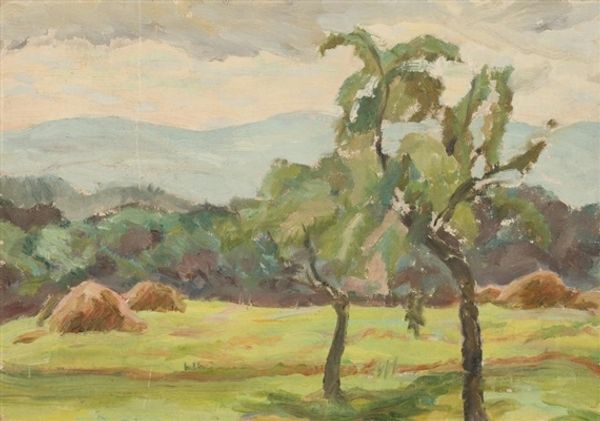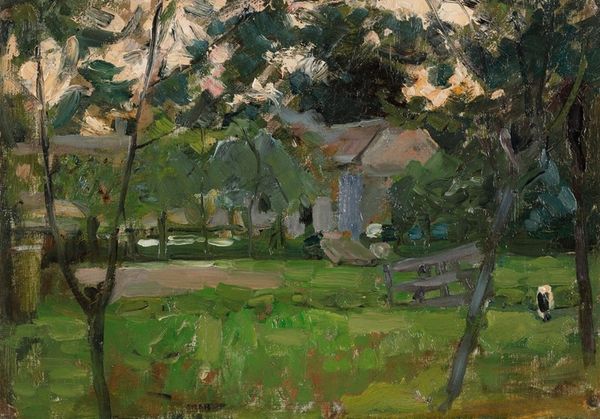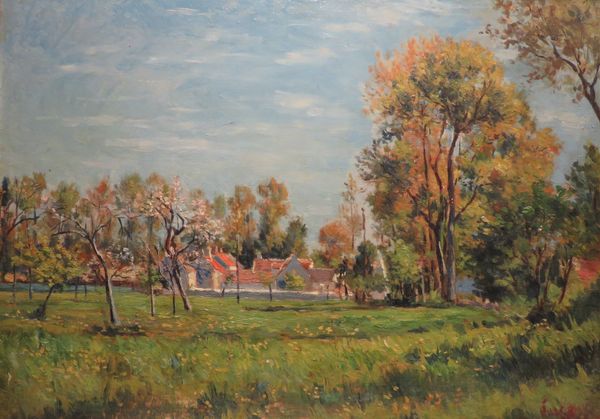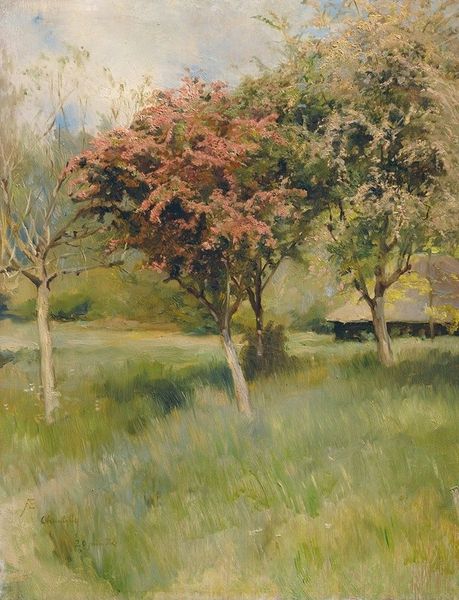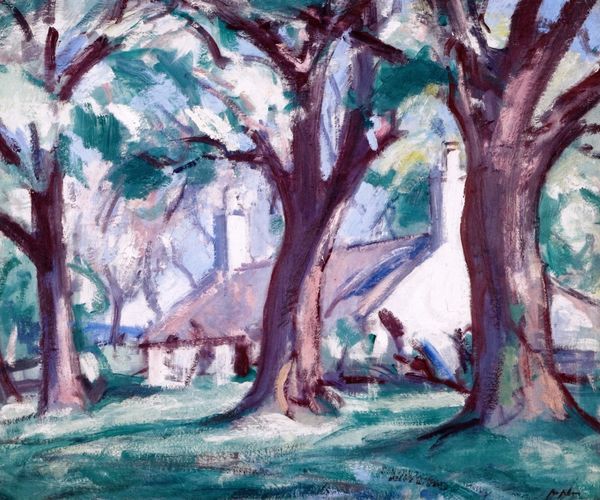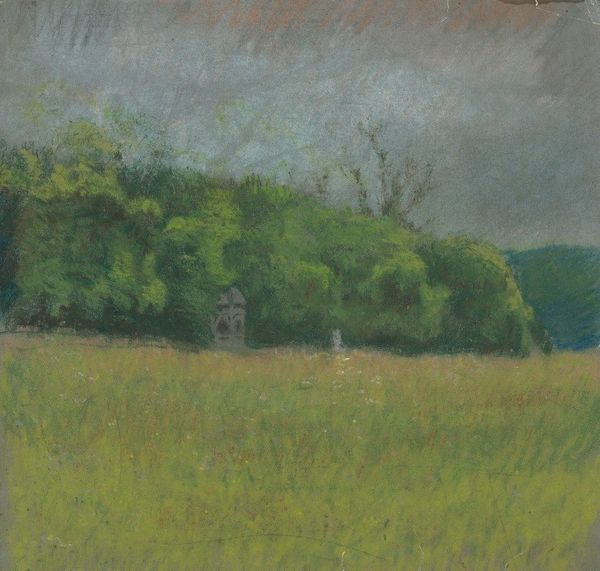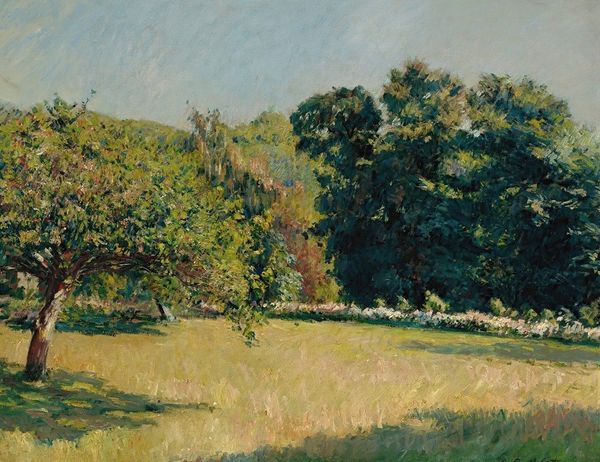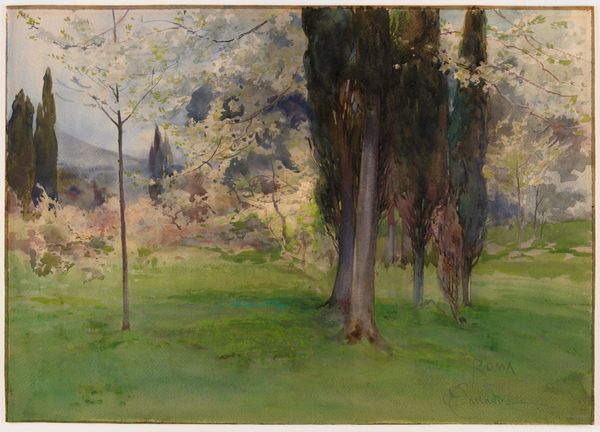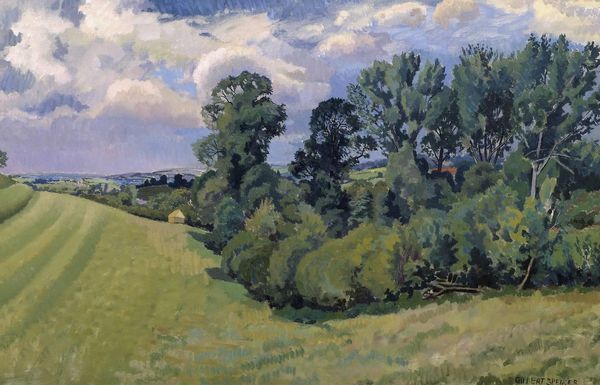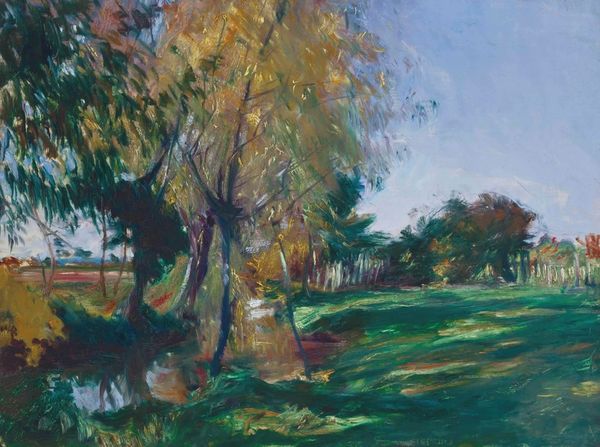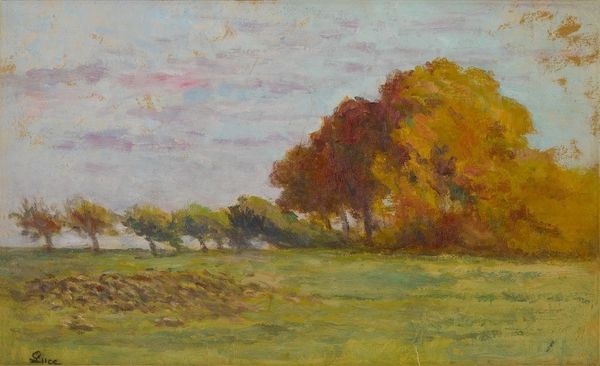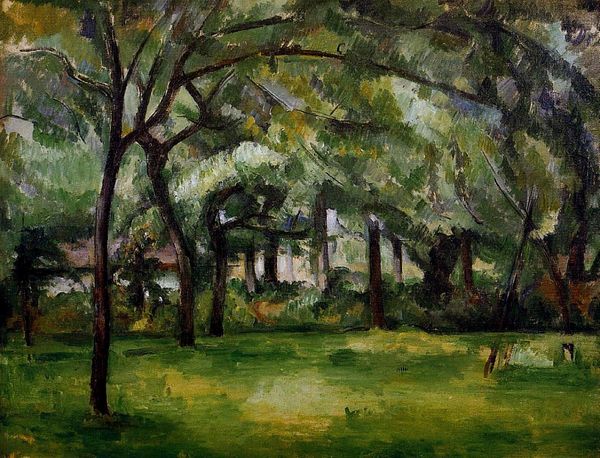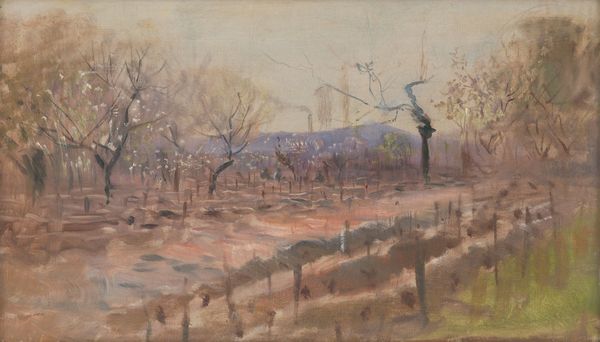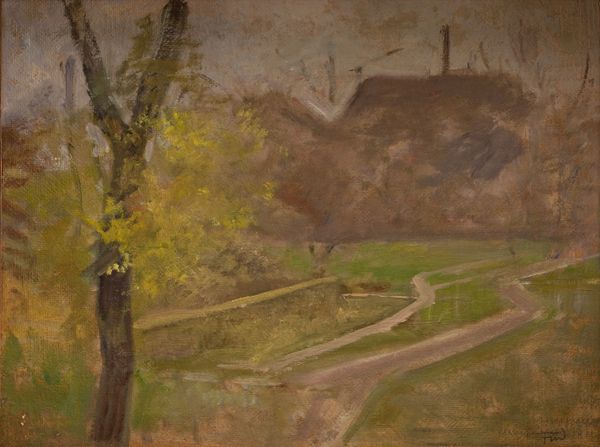
Copyright: Public domain
Curator: Looking at this painting, what first strikes you about it? Editor: Immediately, it’s the somber palette, which I wasn't expecting. It’s an evocative piece that invites introspection. There’s an overcast feeling, but also a quietude. It almost feels as if time is standing still, or we are looking at some faded collective memory. Curator: Interesting perspective. What we're looking at here is "Rixens Landscape" completed around 1925 by Jean-André Rixens. It's an oil painting executed in a style reflective of both Romanticism and the burgeoning plein-air tradition of the era. Editor: Yes, I see those influences, certainly. Plein-air brought art out of stuffy studio settings but the painting does reflect the concerns with mood and personal response typical of Romanticism. What do you find significant about this work in terms of Rixens' broader artistic practice? Curator: While Rixens is best known for his history paintings focusing on events during the French revolution, he seemed drawn to return to scenes from everyday life such as this work as it demonstrates that art and beauty can be discovered everywhere in the most unexpected places. I would say there is something inherently political in demonstrating that the aesthetic pleasures traditionally afforded only to the elite and powerful could be within the reach of all. Editor: I agree completely, this artistic democratization you mention brings attention to previously unnoticed figures of our shared past. We can consider what it means to represent laborers in such a context, particularly during an era undergoing significant social and economic changes. This creates a subtle, yet insistent dialogue between history and present. The painting invites us to contemplate not just the depicted moment, but also its socio-political implications and its continued relevance today. Curator: Ultimately, "Rixens Landscape" encourages us to seek both historical context and deeper appreciation within art, recognizing its profound effects and subtle statements about ourselves, class, society and existence. Editor: It is a testament to art's capability to elicit conversation, compelling us to investigate both ourselves and the world we occupy with increased consciousness.
Comments
No comments
Be the first to comment and join the conversation on the ultimate creative platform.
